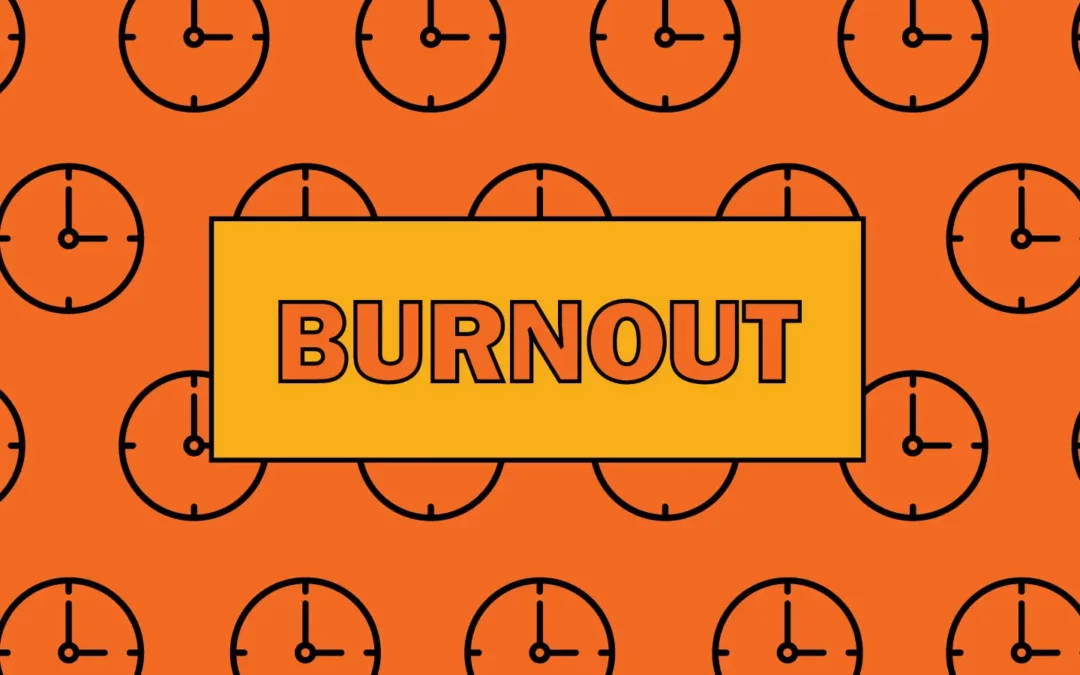What is Burnout?
The negative consequence of cultural pressures to always increase productivity has reared its head in the form of burnout. Prolonged stress can cause burnout, which is a state of emotional, physical and mental exhaustion. The idea of burnout is traditionally associated with the workforce, but burnout can be from any situation where you experience excessive stress for an extended period of time. Although a healthy amount of stress (what psychologists call “eustress”) can help you feel motivated, burnout can present as a decline in performance and unable to complete tasks you usually would. If left untreated, burnout can lead to severe physical and mental illnesses and have severe implications on other aspects of your life.
How do you identify burnout?
Rather than coming on all at once, burnout is a progressive condition that comes on in stages. According to Juli Fraga, a psychologist in San Francisco, there are twelve stages of burnout. The first few stages are pushing yourself too hard to meet excessive demands and neglecting to take care of your personal needs as a result. The following stages include denial that you’re overworking, withdrawal from your social sphere and behavioural changes such as increased irritability. If your excessive stress continues, these stages can advance and escalate to depersonalization (feeling detached from your life), feelings of depression or anxiety, and eventually mental or physical collapse. Since burnout is a progressive condition, the early and moderate stages should be taken seriously and addressed in order to avoid the risk of complete burnout. If you find yourself feeling more tired or irritable than usual or feeling stressed and like you have no more energy to give, then it could be useful to ask yourself whether you may be experiencing the early stages of burnout.
How do you treat burnout?
If you are experiencing signs of burnout, the first thing to do is to take a break. Taking a break can be challenging when you’re experiencing excessive stress and feel that you need to get more things done, but taking a break will allow you to rest and recharge to help remedy your burnout. Some other immediate steps might include taking time off work, cancelling or rescheduling plans, or reaching out to those around you to take on some of your daily tasks while you nurse yourself back to health. Once you’ve had some time to recuperate and feel better, consider identifying where your burnout came from and how you can minimize it now and prevent it from happening again.
How do you prevent future burnout?
There are some steps to take to help prevent burnout from returning after dealing with the initial symptoms. These steps can include assessing whether you’re working too many hours at your job, whether your class schedule is too unmanageable, and whether you’ve agreed to too many engagements and you need to cancel on some. Longer-term lifestyle changes to avoid burnout can be things like learning how to say no, understanding what your limit is when it comes to workload or work hours, and learning what is and is not worth your energy and stress. By knowing what your limits are when it comes to obligations and learning to detect early signs of burnout, you can better make lifestyle choices that will help you manage stress and avoid future burnout.
For more info on burnout, check out these sources:
https://www.healthline.com/health/tips-for-identifying-and-preventing-burnout
https://collegeinfogeek.com/student-burnout/
Wellbeing blogs are written by the SAMU Wellbeing Assistant, Lauren Rundell.

